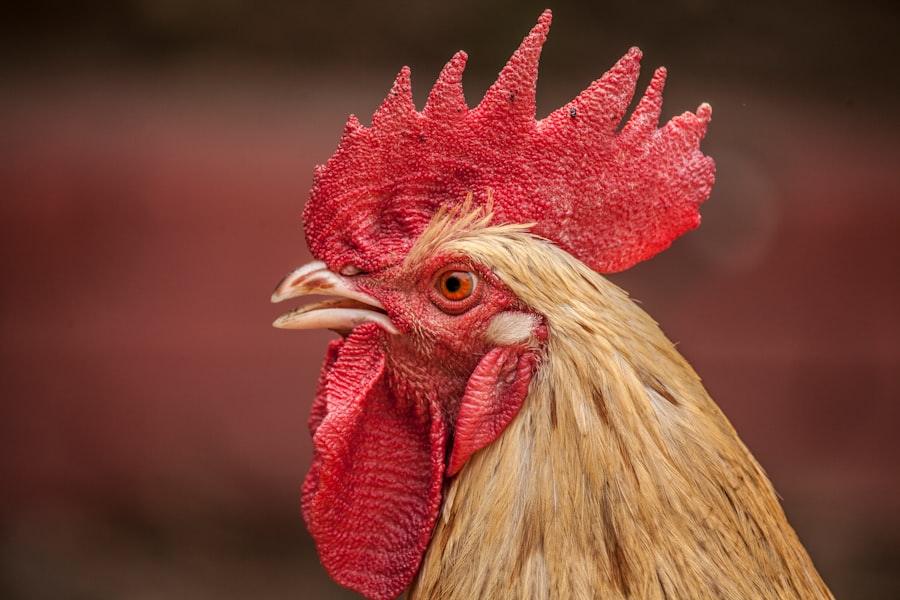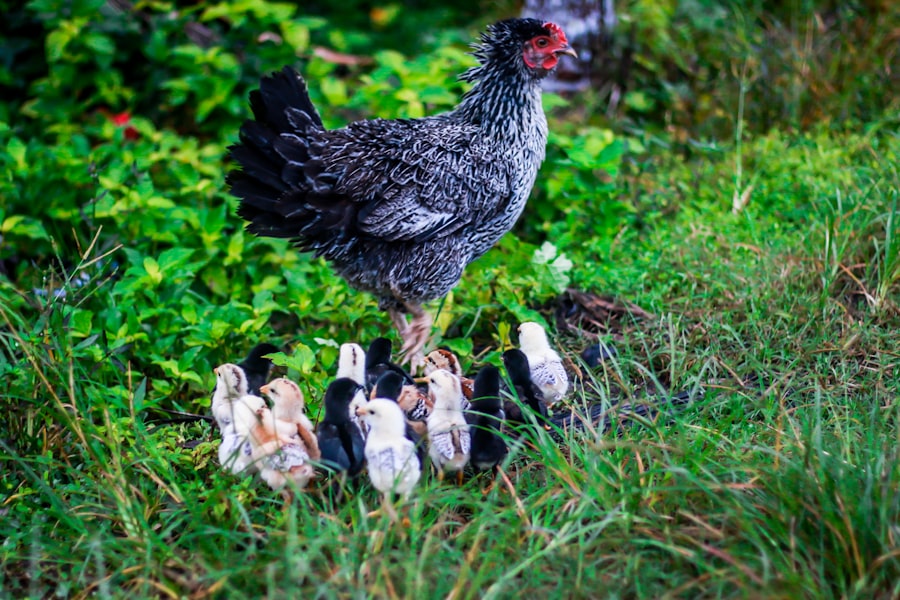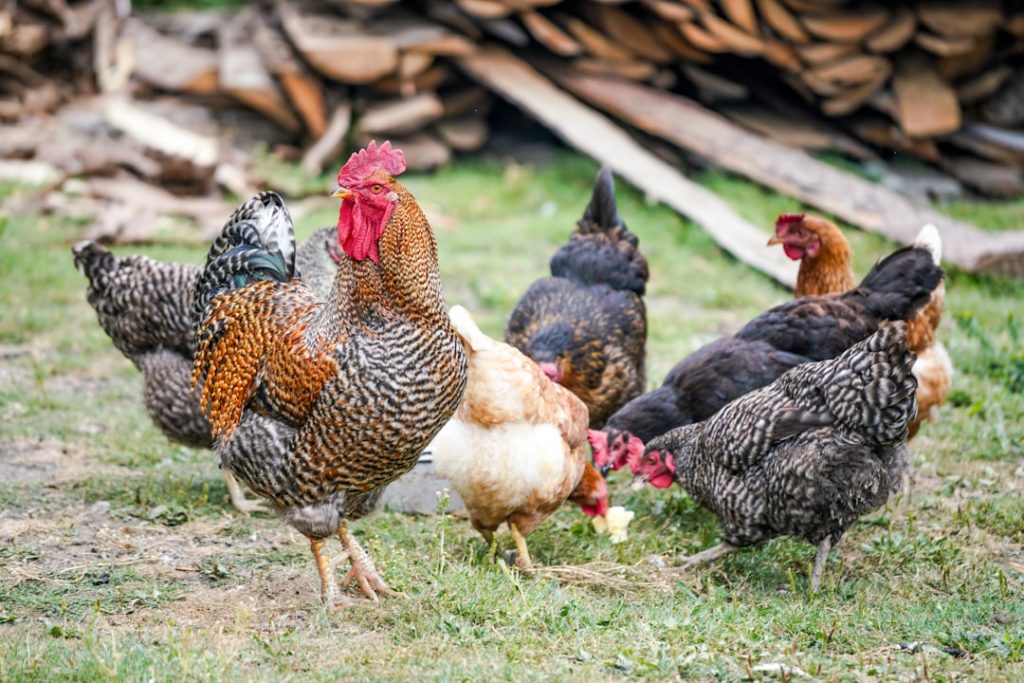Providing entertainment and enrichment for young chickens is essential for their overall health and development. Like other animals, chickens require mental and physical stimulation to maintain their well-being. Without adequate engagement, young chickens may experience stress, exhibit aggressive behavior, or develop health problems.
By offering appropriate activities and environmental enrichment, caretakers can help prevent these negative outcomes and promote the chickens’ overall welfare. Engaging young chickens in stimulating activities can also positively influence their behavior and productivity. Well-entertained chickens are less likely to engage in destructive behaviors such as excessive pecking or feather pulling.
Moreover, providing enrichment opportunities can aid in the development of crucial skills, including problem-solving abilities, foraging techniques, and social interactions. Understanding and implementing strategies to keep young chickens entertained is crucial for maintaining a healthy, harmonious, and productive flock.
Table of Contents
- 1 Providing Stimulating Environments for Young Chickens
- 2 Engaging Young Chickens with Interactive Toys and Objects
- 3 Creating Opportunities for Exploration and Foraging
- 4 Encouraging Social Interaction and Play Among Young Chickens
- 5 Incorporating Enrichment Activities into Daily Routines
- 6 Monitoring and Adapting Entertainment Strategies for Young Chickens
- 7 FAQs
- 7.1 What are some ways to keep young chickens entertained?
- 7.2 Why is it important to keep young chickens entertained?
- 7.3 What are some DIY toys for young chickens?
- 7.4 How can I create a stimulating environment for young chickens?
- 7.5 Are there any potential risks to consider when providing entertainment for young chickens?
Key Takeaways
- Keeping young chickens entertained is important for their physical and mental well-being
- Providing stimulating environments and interactive toys can help keep young chickens engaged and active
- Creating opportunities for exploration and foraging can satisfy young chickens’ natural instincts and provide mental stimulation
- Encouraging social interaction and play among young chickens can help them develop important social skills
- Incorporating enrichment activities into daily routines can help keep young chickens entertained and prevent boredom
Providing Stimulating Environments for Young Chickens
Providing a Spacious and Enriching Living Space
Creating a stimulating environment for young chickens is essential for their mental and physical development. One way to achieve this is by providing a spacious and enriching living space. This can include a variety of perches, platforms, and hiding spots for the chickens to explore.
Incorporating Natural Elements
Additionally, incorporating natural elements such as branches, logs, and rocks can provide opportunities for the chickens to engage in natural behaviors like pecking, scratching, and climbing. Another important aspect of providing a stimulating environment for young chickens is ensuring that they have access to fresh air, natural light, and a variety of sensory experiences.
Encouraging Natural Behaviors
Furthermore, providing opportunities for the chickens to engage in natural behaviors such as dust bathing and sunbathing can contribute to their overall well-being. By creating a stimulating environment for young chickens, you can help them develop important skills and behaviors while also promoting their physical and mental health.
Engaging Young Chickens with Interactive Toys and Objects

Engaging young chickens with interactive toys and objects is a great way to keep them entertained and stimulated. There are a variety of toys and objects that can be used to engage young chickens, including hanging treats, puzzle feeders, and mirrors. These items can provide mental stimulation and encourage natural behaviors such as pecking, scratching, and problem-solving.
In addition to traditional toys, there are also DIY options that can be used to engage young chickens. For example, creating a simple foraging box filled with straw and treats can provide hours of entertainment for the chickens as they search for hidden treasures. Similarly, hanging a cabbage or other leafy greens from the ceiling can provide both entertainment and nutrition for the chickens.
By engaging young chickens with interactive toys and objects, you can help them develop important skills while also preventing boredom and negative behaviors.
Creating Opportunities for Exploration and Foraging
Creating opportunities for exploration and foraging is essential for keeping young chickens entertained and engaged. Chickens are natural foragers, and providing them with opportunities to explore their environment and search for food can help satisfy their natural instincts. This can be achieved by scattering treats or feed around their living space, allowing them to peck and scratch for their food.
Furthermore, creating a designated foraging area with a variety of substrates such as straw, sand, or wood shavings can provide the chickens with opportunities to engage in natural behaviors. Additionally, incorporating natural elements such as logs, branches, and rocks into the foraging area can provide additional stimulation and enrichment for the chickens. By creating opportunities for exploration and foraging, you can help keep young chickens entertained while also promoting their natural behaviors and instincts.
Encouraging social interaction and play among young chickens is important for their overall well-being and development. Chickens are social animals that thrive in group settings, and providing opportunities for them to interact with each other can help prevent boredom and loneliness. This can be achieved by ensuring that the chickens have access to a spacious living space with plenty of room to move around and interact with each other.
Additionally, providing a variety of perches, platforms, and hiding spots can create opportunities for the chickens to engage in social play such as chasing, jumping, and roosting together. Furthermore, introducing new chickens to the flock or providing opportunities for free-ranging can also encourage social interaction among the chickens. By encouraging social interaction and play among young chickens, you can help promote their mental and emotional well-being while also preventing negative behaviors associated with boredom or loneliness.
Incorporating Enrichment Activities into Daily Routines

Additionally, incorporating regular opportunities for social interaction among the chickens can also contribute to their overall enrichment.
Varying Daily Routines
Furthermore, varying the daily routines of the chickens by introducing new experiences or challenges can help prevent boredom and promote mental stimulation. This can include changing up their living space, introducing new treats or toys, or providing opportunities for outdoor exploration.
Promoting Overall Well-being
By incorporating enrichment activities into daily routines, you can help keep young chickens engaged and stimulated while also promoting their overall well-being.
Monitoring and Adapting Entertainment Strategies for Young Chickens
Monitoring and adapting entertainment strategies for young chickens is important for ensuring that they remain engaged and stimulated over time. It’s important to regularly assess the effectiveness of the entertainment strategies being used and make adjustments as needed to prevent boredom or negative behaviors from developing. This can include observing the chickens’ behavior and interactions with toys or objects, as well as seeking feedback from experienced chicken keepers or professionals.
Additionally, staying informed about new research or developments in chicken enrichment can help inform your entertainment strategies and ensure that they remain effective. It’s also important to consider the individual needs and preferences of the chickens when adapting entertainment strategies. For example, some chickens may prefer certain types of toys or activities over others, so it’s important to take this into account when planning enrichment activities.
By monitoring and adapting entertainment strategies for young chickens, you can ensure that they remain engaged and stimulated while also promoting their overall well-being.
If you’re looking for ways to keep your young chickens entertained, you may also be interested in learning about what vegetables quails eat. Check out this article to discover some healthy and tasty options for your quail’s diet.
FAQs
What are some ways to keep young chickens entertained?
Some ways to keep young chickens entertained include providing them with toys such as hanging mirrors or shiny objects, creating a dust bath area for them to enjoy, and providing them with perches and platforms to explore.
Why is it important to keep young chickens entertained?
Keeping young chickens entertained is important for their overall well-being and mental stimulation. It can also help prevent boredom-related behaviors such as feather pecking and aggression.
What are some DIY toys for young chickens?
DIY toys for young chickens can include hanging a cabbage or lettuce for them to peck at, creating a simple obstacle course for them to navigate, or providing them with a shallow pan of water for splashing and playing.
How can I create a stimulating environment for young chickens?
To create a stimulating environment for young chickens, you can provide them with a variety of perches and platforms to explore, introduce new objects and toys into their living space, and allow them access to a safe outdoor area for foraging and exploring.
Are there any potential risks to consider when providing entertainment for young chickens?
When providing entertainment for young chickens, it’s important to consider potential risks such as choking hazards from small objects, toxic materials, or sharp edges on toys. Always supervise their playtime and remove any potential hazards.
Meet Walter, the feathered-friend fanatic of Florida! Nestled in the sunshine state, Walter struts through life with his feathered companions, clucking his way to happiness. With a coop that’s fancier than a five-star hotel, he’s the Don Juan of the chicken world. When he’s not teaching his hens to do the cha-cha, you’ll find him in a heated debate with his prized rooster, Sir Clucks-a-Lot. Walter’s poultry passion is no yolk; he’s the sunny-side-up guy you never knew you needed in your flock of friends!







